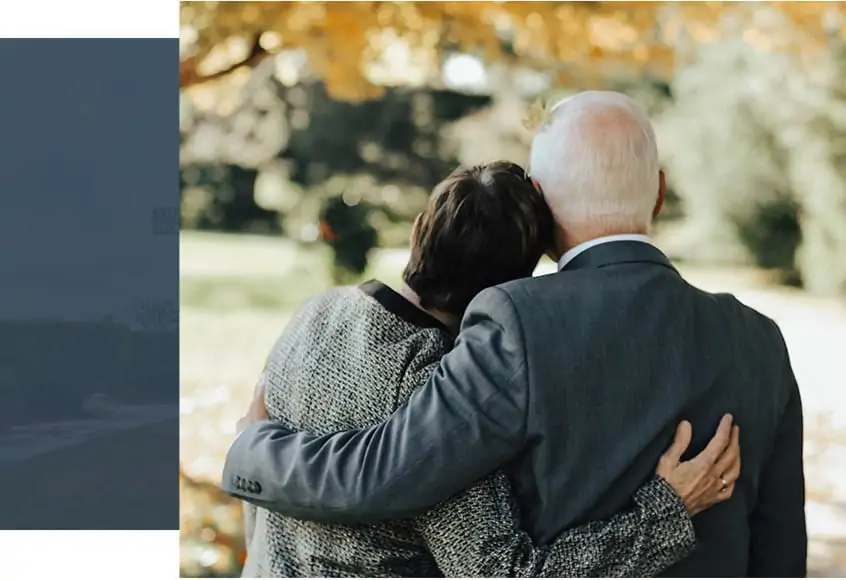Most people would define grief as a feeling of great sadness that follows a loss. Since you often hear the two words “grieving process” together, some surmise that the end result of the grieving process is that your sadness goes away.
If you recently lost someone, you may be questioning your previous ideas about grief. You may be wondering what is wrong with you because you know you’ll never be the same again. You may not be able to imagine your sadness ever going away.
Let’s explore the concept of grief. We’ll discuss the stages of grief and what they mean. Then we will discuss the role of grief counseling and support groups.
The Emotions of Grief
There are myriad emotions that are connected with grief. While indeed “sadness” is at the top of the list, you may also feel anger, guilt, anxiety, loneliness, helplessness, hopelessness, shock, yearning, relief, and numbness.
Some people withdraw socially, and others become obsessed with the deceased. Others may have a hard time thinking, and some seem not to be affected by the loss at all. After looking at this list, it shouldn’t surprise you to see the death of your loved one affecting your family members in all different ways.
As you consider your own feelings, you may now understand that grief comes with a wide variety of emotions. Some you may expect, but other feelings may surprise you.
The Five Stages of Grief
In the late 1960s, psychiatrist Elizabeth Kubler-Ross wrote a book based on what she noticed from working with terminally ill patients. In her book “Of Death and Dying,” Kubler-Ross wrote about the five stages of grief that terminally ill patients sometimes experience. These stages are denial, anger, bargaining, depression, and then finally, acceptance.
Even though Kubler-Ross’s original stages were meant to describe the feelings of terminally ill patients, it has become widely used to describe the stages of grief that a person experiences after a loved one’s death. While this wasn’t the original intention of Kubler-Ross’ work, it helped people realize that not only do people experience different emotions when someone dies, but those emotions may change over time.
Yes, Kubler-Ross’s last stage of grief for terminally ill patients is “acceptance.” While you may eventually accept that your loved one is gone, you may still experience emotions regarding the loss for the rest of your life.
Grief Counseling
Since you know that a wide variety of emotions sometimes coincide with losing a loved one, how do you know if you need professional help? If you feel that your life is meaningless, are experiencing panic attacks, and are feeling suicidal, you need to immediately seek the help of a professional counselor.
Grief counselors typically use talk-based therapy. They help cope with a wide range of challenges that come with grief, including emotional, social, spiritual, and even physical responses, including memory loss and problems concentrating.
Support Groups Really do Help
Perhaps you feel that at this point, you don’t need the help of an individual grief counselor, but you want to be able to talk with others who have recently gone through a similar experience. In that case, you may benefit from joining a support group. Consider completing an online search for grief support groups in your local community. Also, reach out to area Hospice organizations, hospitals, funeral homes, churches, or mental health organizations near you. There are also online support groups for people who want to receive support from the comfort of their own homes.
You may find targeted support groups. For example, if your loved one died while serving the country, there are support groups for service members’ families. Those who have family members who died as a result of suicide also have specific support groups. You may find the support group experience more helpful if you find one targeted to your situation.
Ways You Can Give Back
You may find that the experience of losing someone makes you want to reach out to others who are in a similar situation. While we certainly aren’t advising that amateurs offer grief counseling, it is kind to reach out to others during their time of loss. Eat dinner with a person who recently lost a spouse. Extend invitations to those who will be alone during the holidays. Share memories of the deceased, and listen to the family members as they talk about their grief.
Also, recommend that the family consult with a funeral service that shows compassion and integrity. Contact Alabama Funeral Homes and Cremation Centers to pre-plan or plan a funeral.





